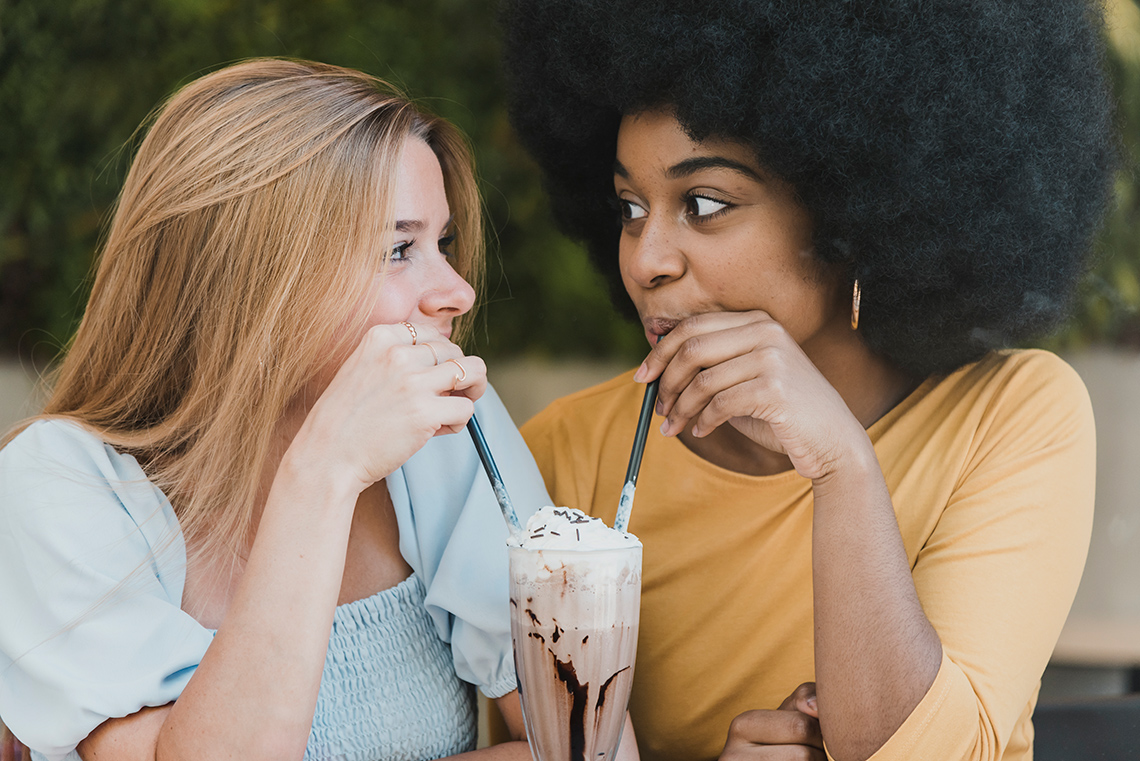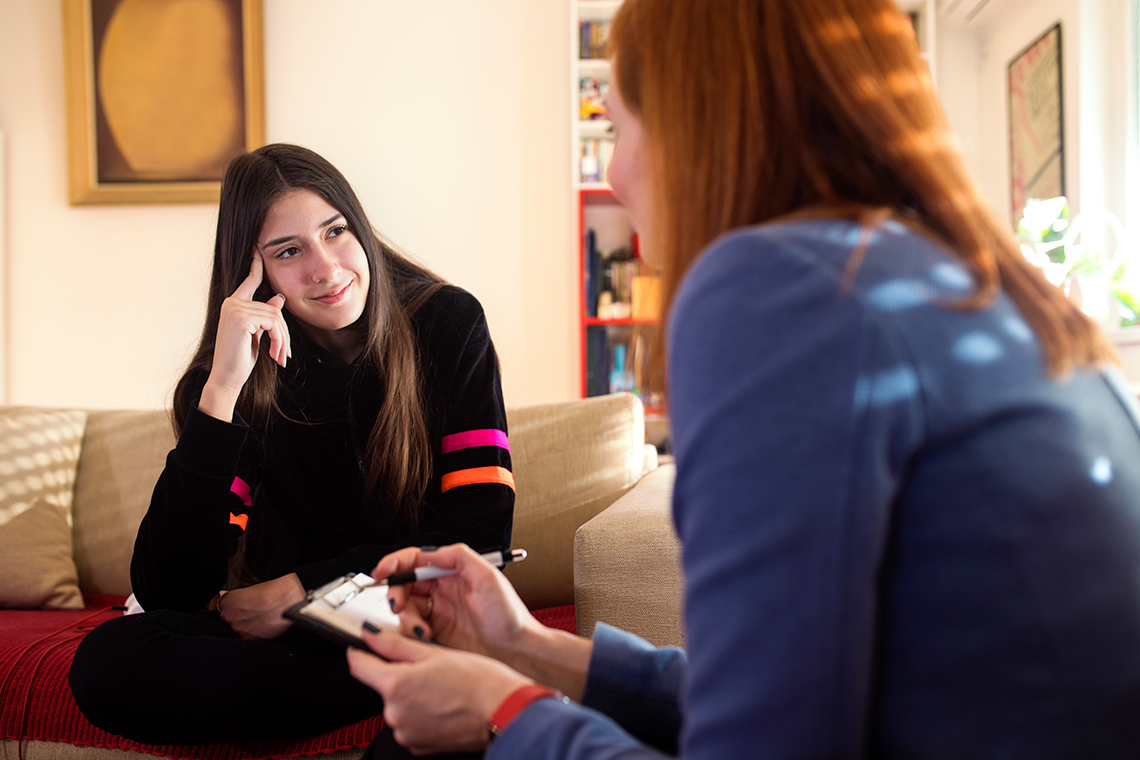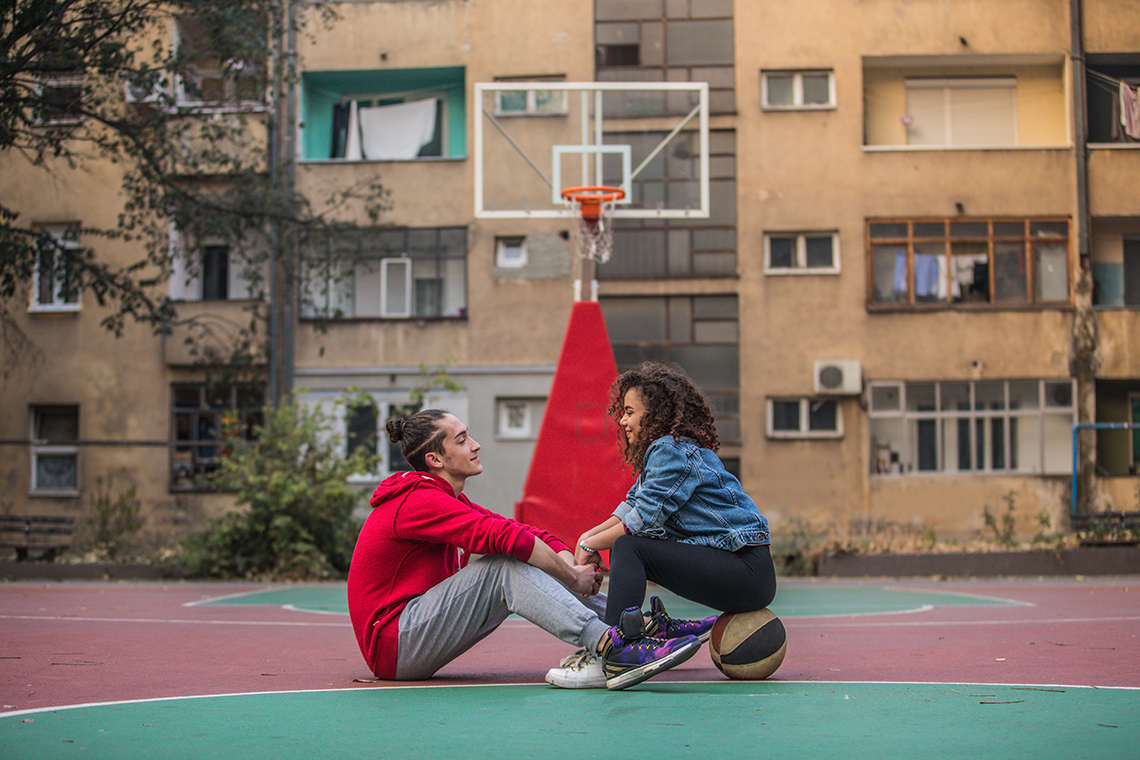Minds On
Sexual relationships
Relationships that involve sexual activity are a part of adult life that teenagers may begin to explore as they make their way through adolescence. These types of relationships, although exciting, can also bring with them physical risks, possible emotional challenges, and potential stress.

What is sex?
From a purely biological perspective, sex is the act of creating offspring, with the goal of an egg being inseminated by a sperm. However, there are many ways that humans can be sexual. It is important to recognize that everybody may have their own definition of sex, and what they personally consider to be a sexual act.
Question: What do you consider to be sexual activity?
After thinking about the question on your own, press ‘Answer’ to access a definition of sexual activity.
A sexual act can range from activities done alone or with another person that causes sexual arousal and physiological changes in the body.
Credible sources
Teenagers need to know about the benefits and risks of different types of contraception. They need to understand that the only 100 per cent sure way of not becoming a parent is to abstain from sexual contact. Those who choose to be sexually active also need to know which contraceptive methods provide a protective barrier against disease as well as pregnancy.
Question: What are some valid sources that teenagers or adults can turn to in order to learn about the benefits and risks of engaging in sexual activity?
Record your list in a method of your choice.
After thinking about the question on your own, press ‘Answer’ to access a few examples of valid sources.
The official websites of verified medical professionals, personal doctors, and resources created by government organizations.
Question: What are some sources that teenagers or adults should avoid using as a learning tool for the risks of engaging in sexual activity?
After thinking about the question on your own, press ‘Answer’ to access a few examples of sources to avoid.
Social media posts from people other than verified medical professionals.
Action
Factors affecting choices

The decision to be sexually active is a personal choice that everyone gets to make for themselves. No one should feel pressured to engage in sexual activity.
There are many factors that can affect someone’s decision to be sexually active. Some of these factors include:
- concerns such as STBBIs (sexually transmitted and blood-borne infections), unwanted pregnancy, or legal concerns about the age of consent
- personal factors such as wanting to wait, establishing personal limits, personal readiness, curiosity, desire, religious beliefs, cultural teachings, personal values, and self-concept
- pressures such as peers and media
- awareness and acceptance of gender identity and sexual orientation
- access to information
When determining whether someone is ready to be sexually active, there needs to involve conversations with their partner about sexual health choices, consent, and being safe. They need to share their feelings and listen to each other with care and respect.
Consent

Consent is the act of giving permission for something to happen, or an agreement to do something. Consent is when you allow something to happen. We often hear about keeping hands and feet to ourselves or respecting personal space. This is about consent.
Consent is about creating, understanding, and communicating your personal boundaries with others. Consent is required for any kind of sexual act. Somebody who has given consent is also free to change their mind at any time. Consent is mandatory in all sexual situations.
Determine in each situation whether the statement is true or false, then press ‘Check Answer’ to see how you did.
Pause and Reflect
Making decisions
Question: How can personal limits and life goals influence someone’s decision to become sexually active?
Record your ideas in a method of your choice.
After thinking about the question on your own, press ‘Answer’ to access a possible response to check your answer.
It is important for everyone to consider what they value and what their own personal limits are before engaging in sexual activity. This will allow them to make decisions that they are comfortable with in a variety of situations. Because they have created a plan, they will have more confidence about this decision and not get caught off guard.
Where to go for support?

There are people and organizations where teens can go for support regarding their sexual health.
Some of these include:
- A health care professional – doctors, nurses, public health practitioner
- An educator – a teacher or guidance counsellor
- A religious leader
- A parent or trusted adult
- A verified website – associated with a medical organization, government website, a health care professional
Pause and Reflect
Importance of credible sources
Question: Why is it important for all youth to get information from a credible source before making a decision that has to do with sexual health or sexual activity?
Record your thoughts in a method of your choice.
After thinking about the question on your own, press ‘Answer’ to access a possible response to check your answer.
Having information that you can trust and is correct helps you make better decisions. If you take the time to get the proper information, it allows you more time to consider your own decisions. Those who are well informed about sexual health are aware of the possible health consequences of being sexually active and will be more prepared. Because there are teens with a variety of needs and dealing with exceptionalities, they should seek trusted professionals to help them adapt sexual health information to their particular needs.
Consolidation
Bring it all together
Use your knowledge to answer the following questions.
Select the correct answer, then press ‘Check Answer’ to see how you did.
Is it consensual?

Select one of the scenarios below to analyze. Reflect on the questions and record your opinion using a method of your choice.
- Was this a consensual interaction? Do you have enough information to decide if it was consensual or not? If not, what other information would you need?
- How might both characters feel after the interaction?
- How could this interaction have gone differently?
- What support could this couple need? Where could they get this support?
Press the following tabs to access the two scenarios.
 Two students have been a couple for one week. They have gone on a date to the park
and held hands. Not very many students at their school have dated before. After
school one day, they are hanging out at the basketball nets. Out of nowhere, Student
A kisses Student B on the lips. Student B is shocked, but kisses Student A back.
Afterwards, Student A seems shy and leaves quickly. The next day they are a little
awkward with each other, and nobody talks about the kiss.
Two students have been a couple for one week. They have gone on a date to the park
and held hands. Not very many students at their school have dated before. After
school one day, they are hanging out at the basketball nets. Out of nowhere, Student
A kisses Student B on the lips. Student B is shocked, but kisses Student A back.
Afterwards, Student A seems shy and leaves quickly. The next day they are a little
awkward with each other, and nobody talks about the kiss.
Reflection
As you read the following descriptions, select the one that best describes your current understanding of the learning in this activity. Press the corresponding button once you have made your choice.
I feel…
Now, expand on your ideas by recording your thoughts using a voice recorder, speech-to-text, or writing tool.
When you review your notes on this learning activity later, reflect on whether you would select a different description based on your further review of the material in this learning activity.
Press ‘Discover More’ to extend your skills.
Discover More